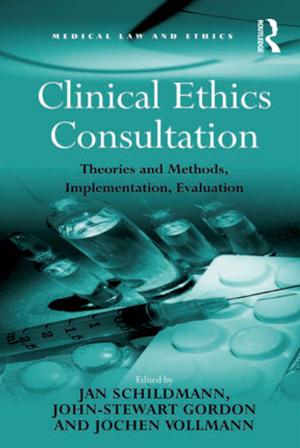Outside the Dream (RLE: Lacan)
Lacan and French Styles of Psychoanalysis
Nonfiction, Health & Well Being, Psychology, Psychoanalysis, Mental Health| Author: | Martin Stanton | ISBN: | 9781317908951 |
| Publisher: | Taylor and Francis | Publication: | January 23, 2014 |
| Imprint: | Routledge | Language: | English |
| Author: | Martin Stanton |
| ISBN: | 9781317908951 |
| Publisher: | Taylor and Francis |
| Publication: | January 23, 2014 |
| Imprint: | Routledge |
| Language: | English |
Originally published in 1983, Martin Stanton has written an intriguing and original guide to French styles of psychoanalysis. He describes the development of psychoanalytic technique and shows how it has transformed the contemporary French literary and philosophical thought and writing, as well as making inroads in the English-speaking cultural world. He argues that psychoanalysis has outgrown the individual setting and needs to evolve new methods of group work – in this respect, he believes, it has a special role to play in educational institutions.
The book examines the grounds on which analysis has evolved subversive and deconstructive strategies and created radical alternatives. It relates the ‘Lacan effect’ on the psychoanalytic movement to long-standing debates on patriarchy and authoritarianism, and considers, in a clinical section, variant diagnoses of paranoia and schizophrenia. It also discusses the future direction of psychoanalysis in the light of contemporary French research.
Originally published in 1983, Martin Stanton has written an intriguing and original guide to French styles of psychoanalysis. He describes the development of psychoanalytic technique and shows how it has transformed the contemporary French literary and philosophical thought and writing, as well as making inroads in the English-speaking cultural world. He argues that psychoanalysis has outgrown the individual setting and needs to evolve new methods of group work – in this respect, he believes, it has a special role to play in educational institutions.
The book examines the grounds on which analysis has evolved subversive and deconstructive strategies and created radical alternatives. It relates the ‘Lacan effect’ on the psychoanalytic movement to long-standing debates on patriarchy and authoritarianism, and considers, in a clinical section, variant diagnoses of paranoia and schizophrenia. It also discusses the future direction of psychoanalysis in the light of contemporary French research.















